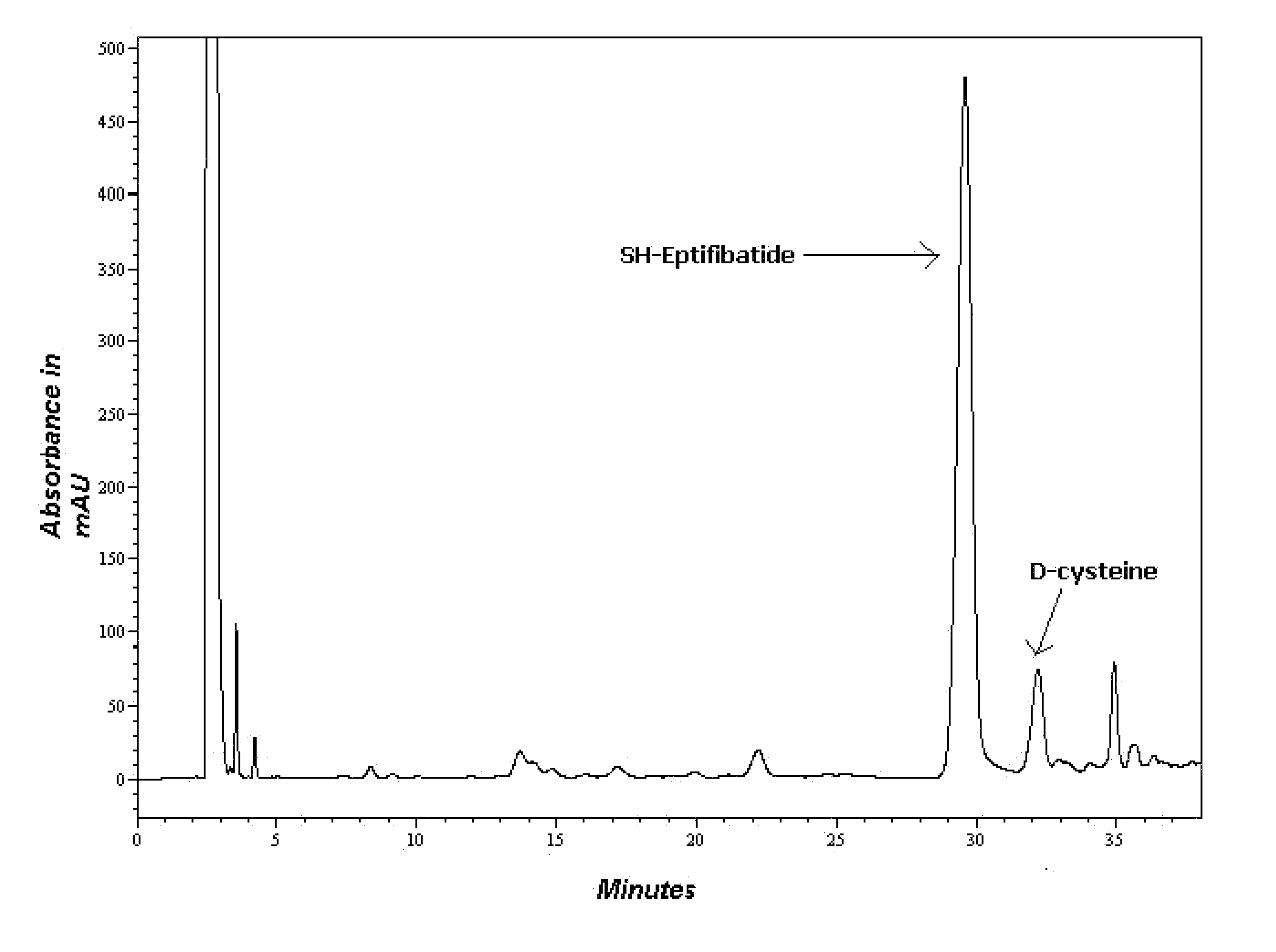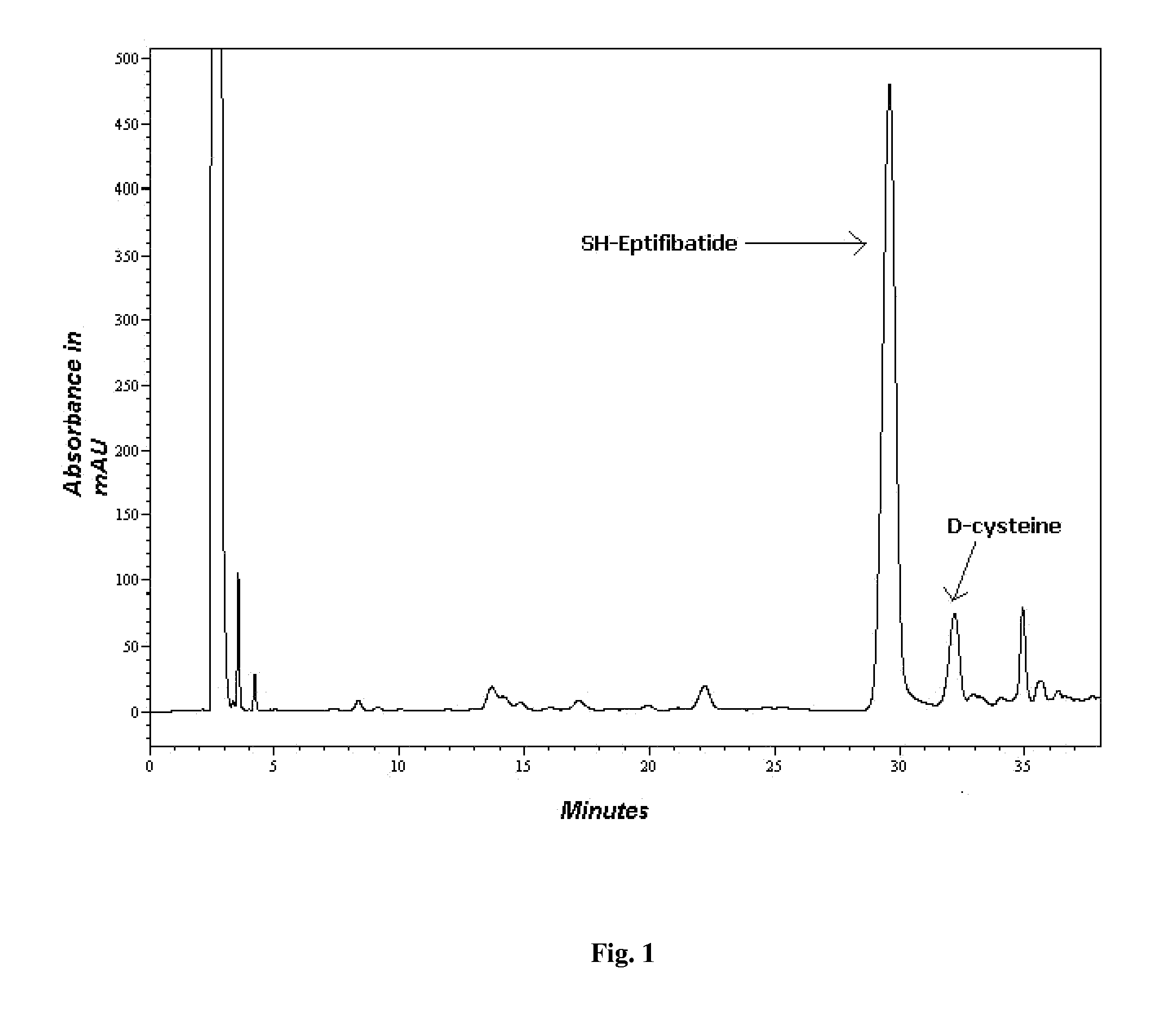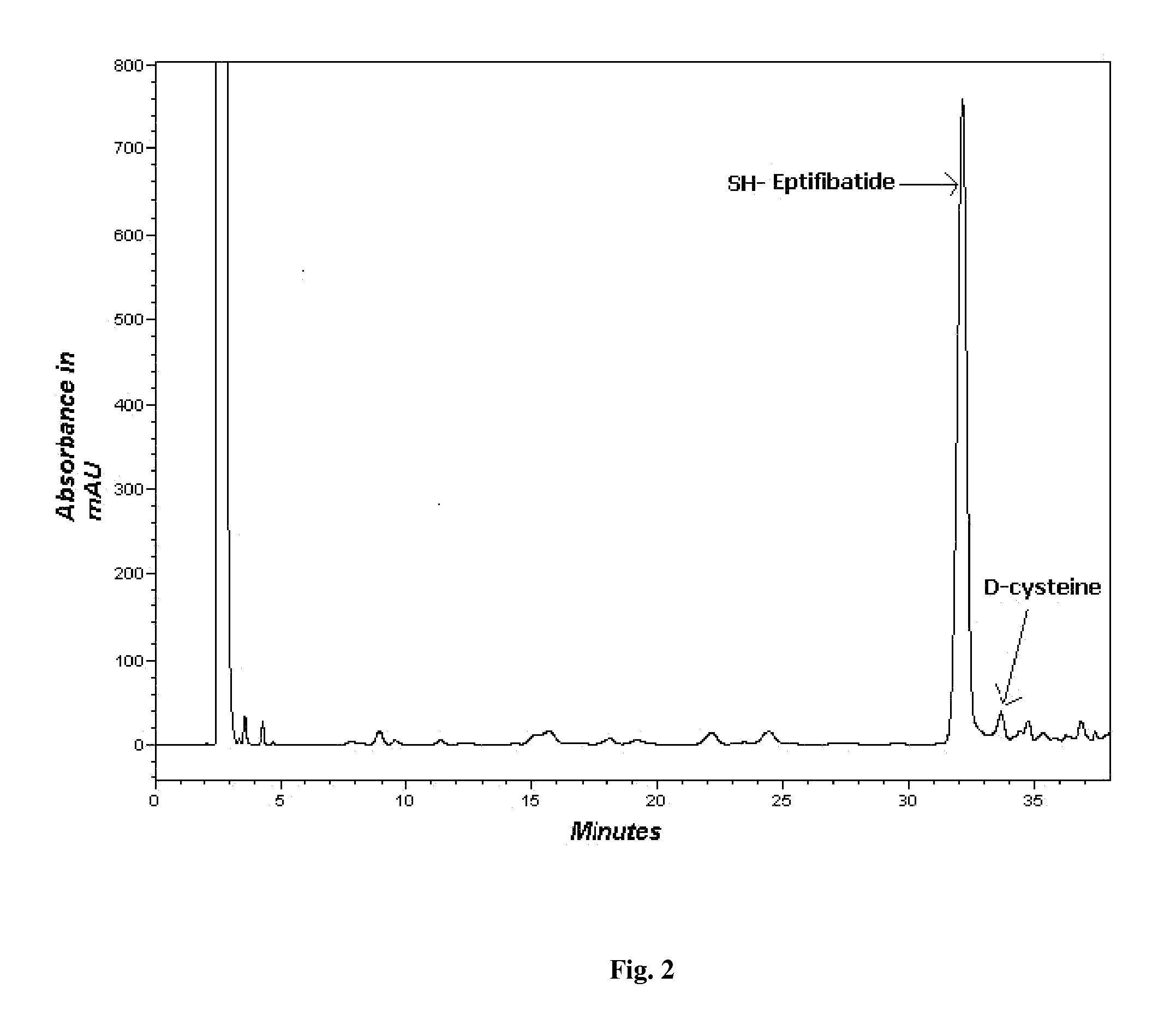Process for the Synthesis of Cyclic Heptapeptide
a technology of cyclic heptapeptide and synthesis process, which is applied in the direction of peptides, peptides/protein ingredients, fibrinogens, etc., can solve the problems of increasing the complexity of the relationship between the supplier and the customer, and the threat of expensive raw materials generating complex impurity profiles
- Summary
- Abstract
- Description
- Claims
- Application Information
AI Technical Summary
Benefits of technology
Problems solved by technology
Method used
Image
Examples
examples
Example (1)
Synthesis
[0064]The peptide was synthesized as peptide amide by solid phase peptide synthesis technology on rink amide resin using Fmoc chemistry.
TABLE 1InstrumentCS936, Peptide synthesizerResinRink resin (0.58 mm / g )Side chain protecting GroupsAsp-OBut; Homoarg-(pbf);Cys-Trt; Mpr-Trt.ActivatorHBTU / NMMSolventDimethyl Formamide
[0065]The resin (17.24 g-rink amide resin) was transferred to the reaction vessel of the CS936. The attachment of the first amino acid, viz cysteine was carried out using 2 strategies to reduce its racemization.
[0066]1. Only DMF as a coupling solvent (FIG. 1)
[0067]2. Combination of coupling solvent i.e. DMF / DCM. (FIG. 2)
[0068]The preactivation was carried out by dissolving the amino acid in the coupling solvent along with NMM and HBTU. The remaining amino acids were coupled using only DMF as the coupling solvent. A 2 time excess of the amino acid with respect to the mmole of resin was used for synthesis. Each coupling was for 45-60 min. After the coup...
example
(7)
Formation of Eptifibatide Acetate Using Ammonium Acetate / Acetic Acid and Ethanol
[0077]The counterion TFA was exchanged with acetate by using ammonium acetate / acetic acid and ethanol in water on a C-18 column (250 mm×10 mm). The Peptide fractions were subjected to reverse osmosis and Rotary evaporation for removal of ethanol and concentration. The concentrated material (10-50 mg / ml) was subjected to lyophilization to give the yield of >90.0% having the purity of >99.0% (FIG. 5).
[0078]The above discussed sequence therefore has the following sequence listing:
PUM
| Property | Measurement | Unit |
|---|---|---|
| Fraction | aaaaa | aaaaa |
| Fraction | aaaaa | aaaaa |
| Fraction | aaaaa | aaaaa |
Abstract
Description
Claims
Application Information
 Login to View More
Login to View More - R&D
- Intellectual Property
- Life Sciences
- Materials
- Tech Scout
- Unparalleled Data Quality
- Higher Quality Content
- 60% Fewer Hallucinations
Browse by: Latest US Patents, China's latest patents, Technical Efficacy Thesaurus, Application Domain, Technology Topic, Popular Technical Reports.
© 2025 PatSnap. All rights reserved.Legal|Privacy policy|Modern Slavery Act Transparency Statement|Sitemap|About US| Contact US: help@patsnap.com



